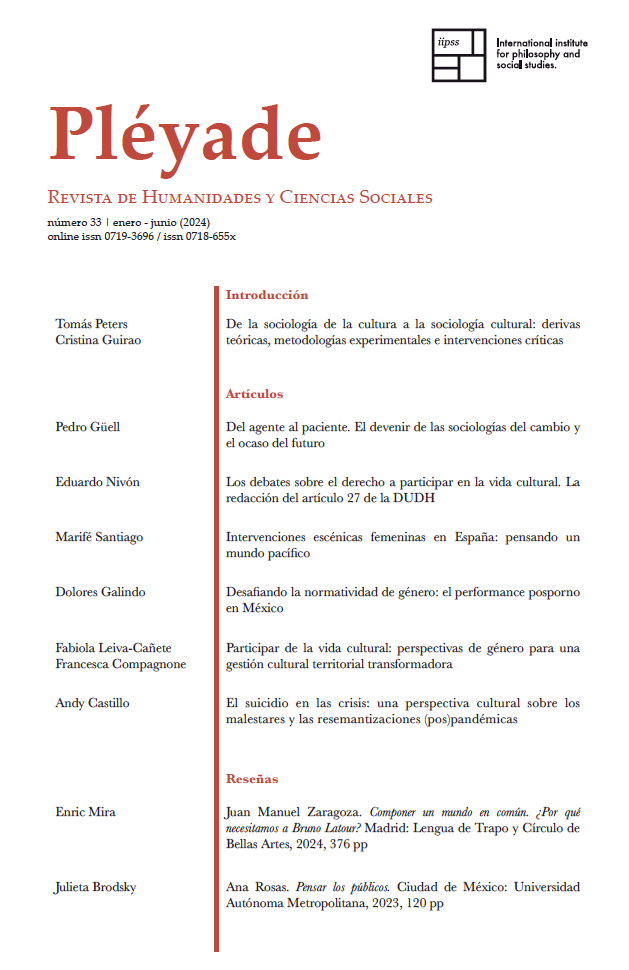From Agent to Patient. The Becoming of Sociologies of Change and the Twilight of the Future

Published 2024-12-02
Keywords
- Social change,
- agency,
- complexity,
- cultural pessimism,
- sociological theory
How to Cite
Copyright (c) 2024 Pedro Güell

This work is licensed under a Creative Commons Attribution-NonCommercial 4.0 International License.
Abstract
This essay reviews recent sociological theories of social change. It demonstrates how they have underonge a major shift since the end of the last century, characterized by a a strongly pessimistic diagnosis about both future prospects and the capacity of social agents to inform the course of events. Conceptions of complexity and self-regulation of social systems, seen as defining theories of today’s global society, have played a key role in this shift. Through a historical critical approach, the essay identifies the universalization and naturalization of specific, ideologically driven interpretations of social trends. It thereby suggests conceiving of complexity and agency as empirical variables that coexist, combine, and condition each other in specific historical contexts, rather than as assumptions. This perspective allows for the understanding that current social powerlessness can be thought of as a specific social and historicalconstruct, rather than as a socioligically necessary fact.